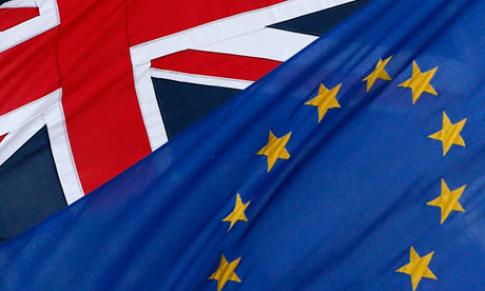More Europe, Less Brussels

The Bratislava summit could be the start of a new effort to connect the European endeavor with all of Europe. The era of Aachen is over; the age of Bratislava has arrived. We need more Europe – and less Brussels. If we embrace this new model – and stick to it – the EU will not only survive; it will thrive.
Carl Bildt
STOCKHOLM – The failed coup in Turkey has reminded us – as though a reminder was needed – of the once-inconceivable stability that the European Union has brought to Europe. But if the post-Brexit EU is to survive, it will need to change the way it thinks about itself.
So far, sad to say, this isn’t happening. Immediately after the Brexit vote, for example, the six founding countries of what used to be the European Economic Community (EEC) – Belgium, France, Germany, Italy, Luxembourg, and the Netherlands – gathered to discuss what to do. To no one’s surprise, the other 21 EU member states felt offended at being left out.
This incident points to the larger challenge that the EU must overcome if it is to secure its post-Brexit future. Simply put, the idea of the Union must resonate with all Europeans, not just those who get invited to exclusive meetings.
The EEC was established in 1957, and the official aspiration then, as it is now for the EU, was to recreate the Europe of Charlemagne that existed more than a thousand years ago.
Since then, European leaders have gathered time and again by Charlemagne’s ancient throne in Aachen, in the German state of North Rhine-Westphalia, to deliver visionary speeches announcing that the time has finally come to build a truly integrated Europe. Aachen has turned into the Mecca for true believers in the EU’s founding myth.
While I agree that Charlemagne is an intriguing historical personality, I do not find him particularly inspiring. He was an impressive warrior, but probably an illiterate one, and the empire he created fell apart soon after his death. The rise of Europe and the West certainly did not start with Charlemagne.
The Europe that inspires me is not the Europe of old warriors; it is the Europe of the thinkers and the traders. It is their contributions that, over the centuries, transformed Europe from the global backwater it had become after the fall of Rome into a hub of intellectual progress and innovation that created the West and changed the course of humanity.
This is the Europe of Copernicus and Erasmus, Henry the Navigator and Isaac Newton, and all the other pioneers who unshackled the human mind from the superstition and prejudice of the immediate past. Their Europe was wide and borderless, far larger than the Europe of Charlemagne. Immanuel Kant’s treatises on how republics could achieve “perpetual peace” were written in Königsberg, in what today is a part of Russia. And the great trading cities of Gdansk, Seville, and Venice maintained links far beyond the borders of today’s EU.
The European project can be renewed only if those who support it move away from the limited Charlemagne-inspired vision, stop talking about “old” and “new” members, and demonstrate in words as well as deeds that they are open to ideas from every part of Europe. The EU will not work unless all member states are regarded as equals in determining a common future.
In 2004, when the EU added ten new members (including eight ex-communist countries), I half-jokingly suggested that the Union move its headquarters from “old-EU” Brussels to a more geographically central, “new-EU” location, such as Bratislava, the capital of Slovakia. The idea behind this fanciful thought was to symbolize the abandonment of a conceptual model that I saw hindering a more open, diverse, and inclusive Union.
The move from Brussels obviously did not happen, but neither did the mental transformation from that old Aachen paradigm. Unfortunately, there can be little doubt that the conclaves held by the Aachen brotherhood within the Brussels bubble provided much fodder for the ruthless, and ruthlessly dishonest, pro-Brexit campaigners. Unless it is overcome, the Aachen mindset will continue to serve a similar purpose for nationalist campaigners in other member states.
It is, of course, a dangerous myth that Brussels has been grabbing power from EU member states. In reality, the gradual erosion of national powers in an increasingly interdependent world has made it necessary for member states to forge, by agreement, common solutions to common challenges.
Common solutions require inclusion and a spirit of cooperation. When the leaders of all 27 remaining EU member states gather in Bratislava in September, they should begin to return Europe to its members – and that means to all of them. The post-Brexit EU must be a Union that is much more closely linked to the political realities of its member states.
Although a new building for such gatherings is rising in Brussels, perhaps we should go back to having at least some EU summits in different parts of Europe. The Bratislava summit could be the start of a new effort to connect the European endeavor with all of Europe.
The era of Aachen is over; the age of Bratislava has arrived. We need more Europe – and less Brussels. If we embrace this new model – and stick to it – the EU will not only survive; it will thrive./project-syndicate




 del.icio.us
del.icio.us Digg
Digg

Post your comment